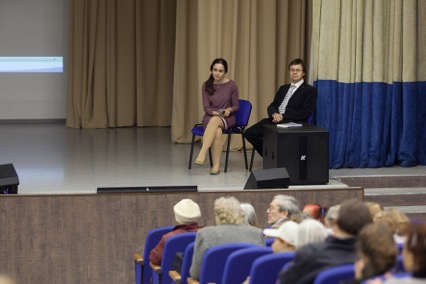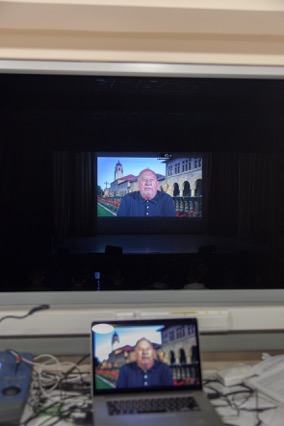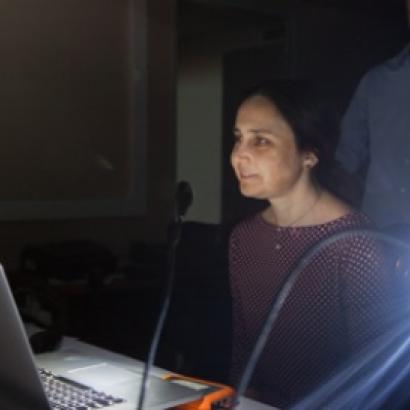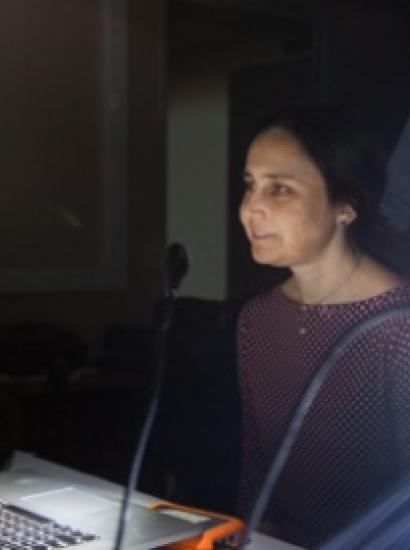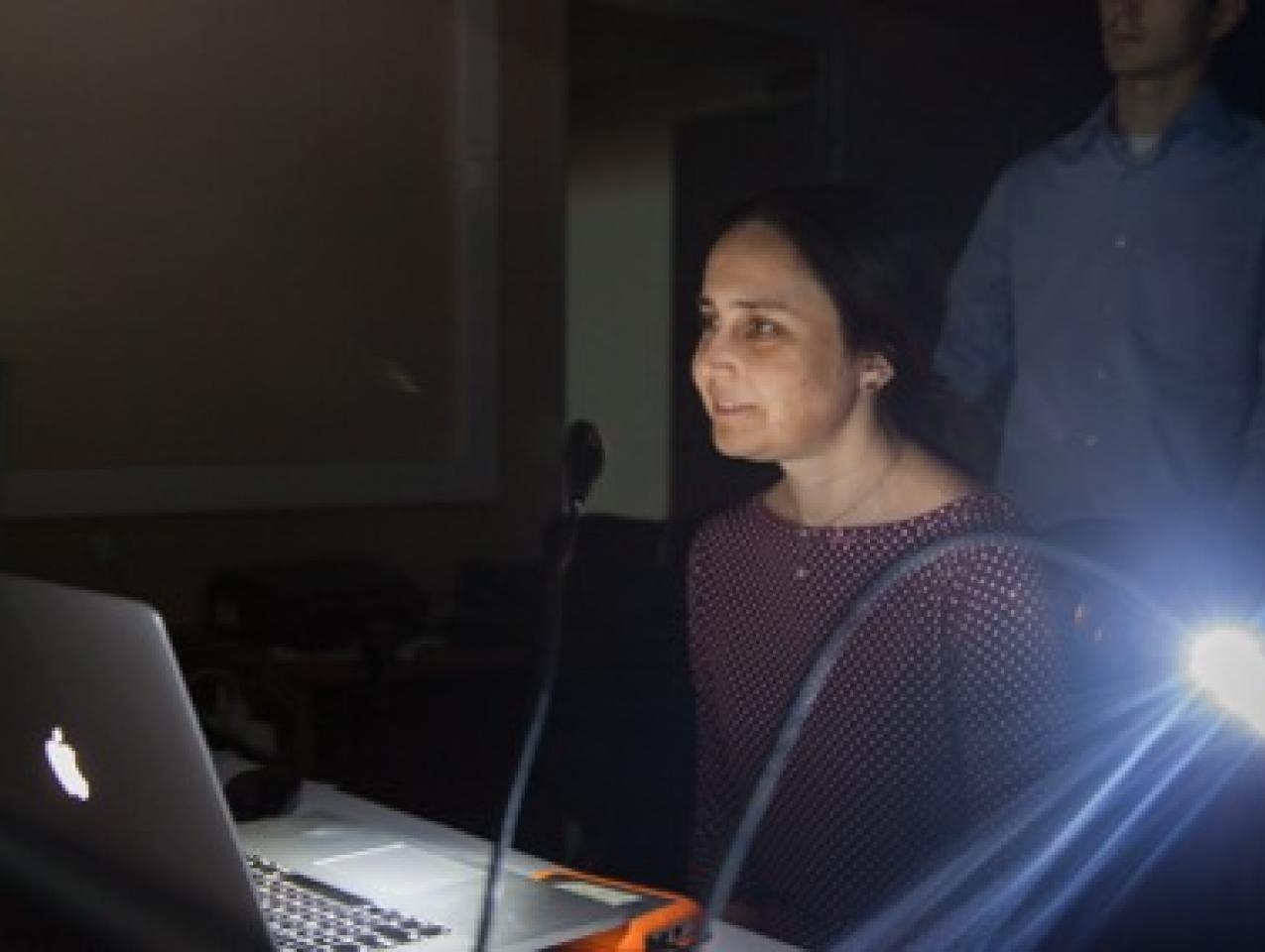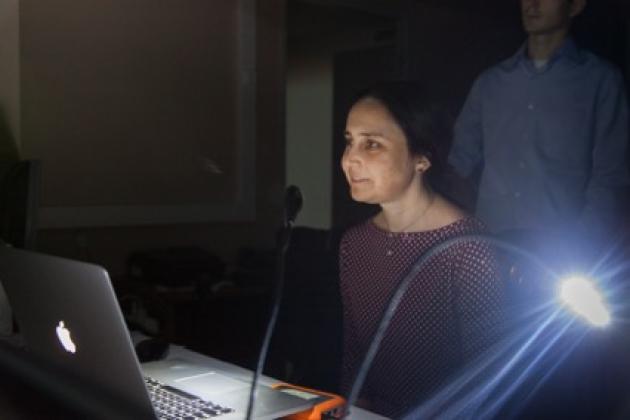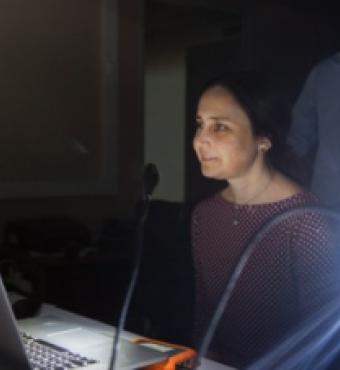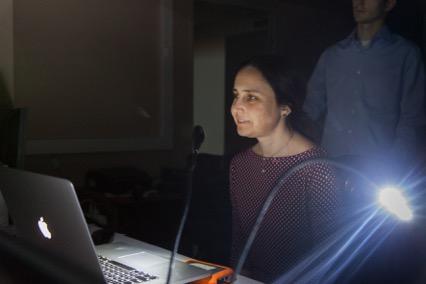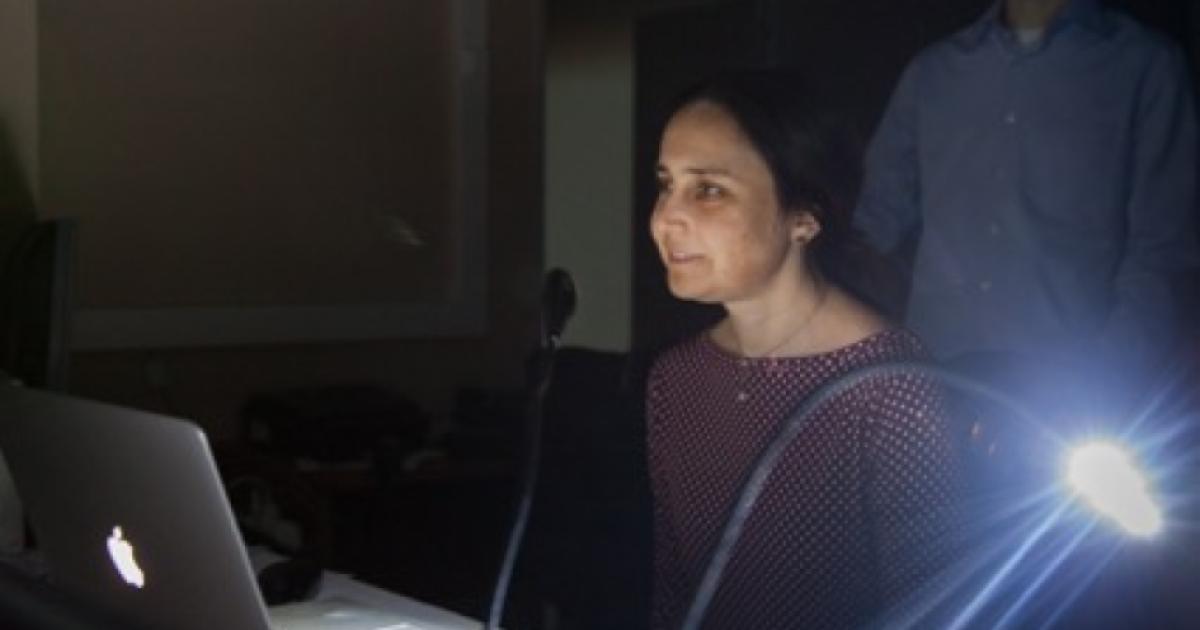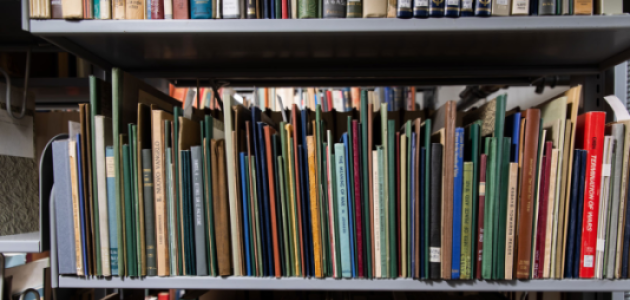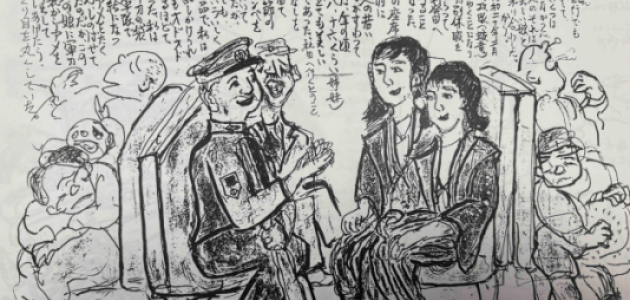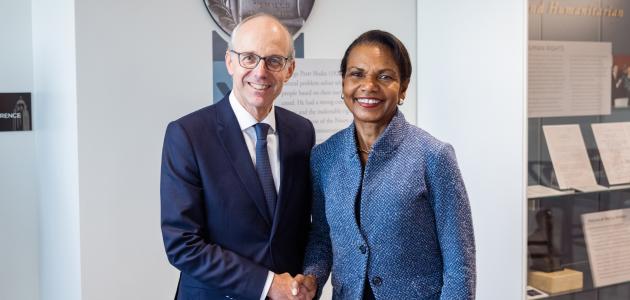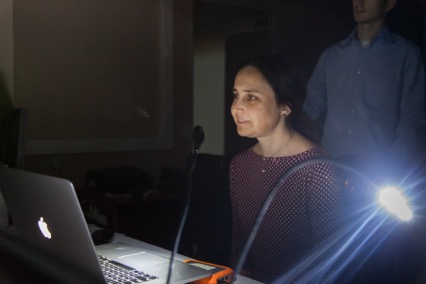
On September 25th, acclaimed Russian-American filmmaker Marianna Yarovskaya, Hoover fellow Paul Gregory, and Hoover archivist Natalia Reshetova, screened a rough cut of their documentary film Women of the Gulag before a packed auditorium of participants in the international conference “Stalinism: Ideology and Practice,” organized by Perm State Humanitarian Pedagogical University in Perm, Russia. The region of Perm is known as the home of Perm-36, a former labor camp which stands in the center of a circuit of abandoned camps in the Urals and Western Siberia. Perm-36 (also known as ITK-6) is the country’s only standing Gulag museum located in a camp preserved for historical memory. Perm-36 was shut down in 1988, and in 1992 was transformed by a group of activists and academics into the Museum of Political Repression, a center for study about the Soviet period and Gulag system. The September conference, organized by history professor Andrei Suslov, was attended by nearly five hundred historians, undergraduate and graduate students, teachers, Gulag survivors, and the families of survivors. For an hour, Yarovskaya fielded questions about the documentary, for which research and filming has taken close to five years. Through Skype, Gregory and Reshetova provided commentary about the project and the role the Hoover Archives played in it. Participants and audience members spoke about the importance of such films and the significance of conveying the truth through film and video testimonies.
Yarovskaya also interviewed one of the audience members – a Gulag survivor, Angelina Bushueva, who had come to see the film. Bushueva had spent her childhood in a special settlement near ALZHIR – a camp for the wives of traitors of the Motherland – where her mother served a sentence after her husband was executed in 1938 at the age of 31 for “anti-Soviet activity.”
The film Women of the Gulag, which features interviews with female survivors of the labor camps, is based on Paul Gregory’s Hoover book of the same title. The idea of the film originated at the Workshop on Totalitarian Regimes, held annually at Hoover Library & Archives. As part of a past workshop, participants discussed Steven Spielberg’s Shoah Foundation, which conducts interviews with Holocaust survivors. The discussion inspired Gregory and Yarovskaya to formulate a similar project dedicated to filming Gulag survivors. Incorporating the help of Hoover archivist Natalia Reshetova and other Hoover archives specialists, Gregory and Yarovskaya worked both at Stanford and in archives and human rights organizations in Moscow to locate the female Gulag survivors they sought to interview. Filming has proceeded at a fast pace because these are truly the last living witnesses of Stalin’s Gulag. Two characters have passed on during the course of filing them, and the health of many other survivors is rapidly in decline. Utilizing an initial Kickstarter campaign and later grants from the National Endowment for the Humanities, the National Endowment for Democracy, and support from the Hoover Institution, Yarovskaya and Gregory were successful in finding and filming survivors of the camps. The documentary explores the survivors’ memories of the conditions of life before Stalin’s terror, life within the camps and reintegration back into civil society, and sheds light on the personal and historical significance of the Gulag system in twentieth-century Russia.
Since its opening in 1919, just two years after the Russian Revolution ushered in the Soviet period, Hoover Library & Archives have served as a center for scholarship concerning Russia and Eurasia. Rich Hoover archives related to the history of the Gulag have served as the foundation for many landmark works about the Soviet labor camps, including Hoover fellow Robert Conquest’s The Great Terror. One of the women highlighted in Women of the Gulag, Nadezhda Levitskaya, spent nine years in prisons and camps and then worked as a secretary for Nobel laureate Aleksandr Solzhenitsyn, himself a distinguished Hoover Fellow at the time of his passing. Solzhenitsyn’s The Gulag Archipelago, which combined oral histories of camp survivors, political analysis, and the author’s own recollections of the camps, is considered a landmark within the field of scholarship related to authoritarian regimes. Solzhenitsyn and Hoover’s late Robert Conquest wrote the introductions to the eight volume prize-winning History of Stalin’s Gulag published jointly by the Hoover Institution and the Russian Archival Service.
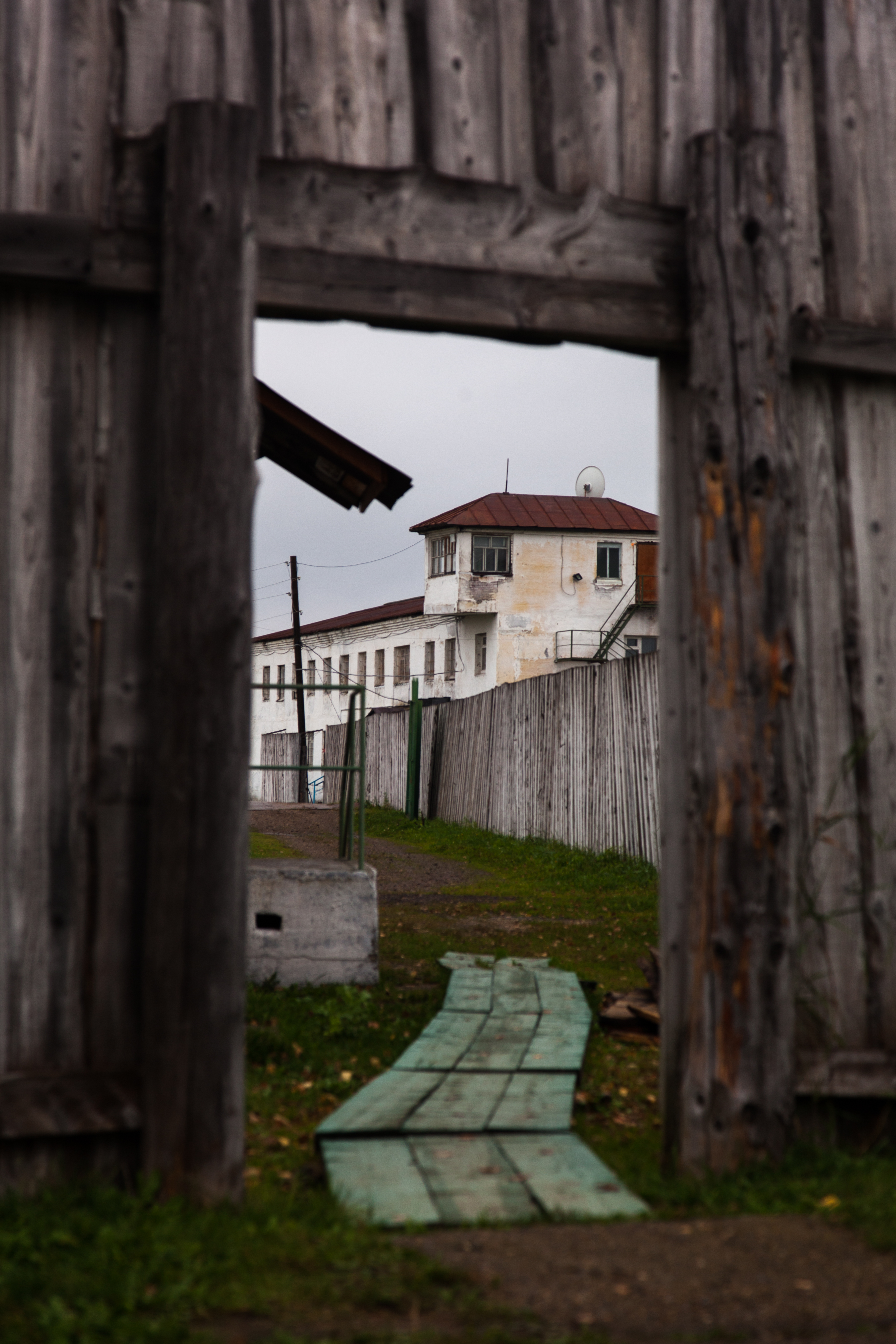
The archives continue to attract scholars both to the Hoover reading room and to Gregory’s annual Workshop on Totalitarian Regimes. Scholars of the history of the Gulag frequently consult the Archives of the Soviet Communist Party and Soviet State; the collection includes thousands of once-secret Politburo, Central Committee, and KGB documents. In June 1998, the Hoover Institution signed an agreement with the State Archives of the Russian Federation to publish the complete records of the Soviet Gulag. The enormous undertaking has produced a microfilm edition consisting of more than 1.5 million pages of documentation from the Soviet archives, covering the history of the Gulag from 1922–1960. Hoover Archives also houses one of the most rare and unique known collections related to the Gulag: that of Thomas Sgovio, an American imprisoned in the labor camps who produced a series of drawings and paintings based on his experiences.
More information concerning the making of Women of the Gulag can be found on filmmaker Marianna Yarovskaya’s website. The website for Paul Gregory’s annual Workshop on Totalitarian Regimes provides details of recent scholarship concerning the history and legacy of the Gulag.
The images from Perm in the slideshow to the upper right are courtesy of Mikhail Bogatchev and are the copyright of MAYFILMS.
